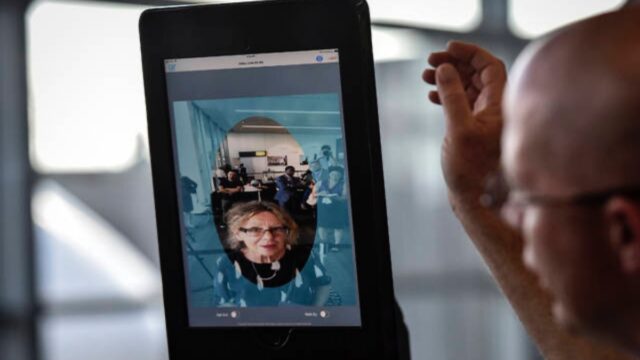Technology can transform lives and help businesses grow and keep their customers, but there are times when technology fails us. The technology failures and shortcomings highlighted here show that companies need to use care to leverage technology to solve problems and interact with consumers.
If you want to use technology and product analytics to understand your customers better, check out this product analytics tool.
Unregulated Facial Recognition
Contents [show]
Have you ever seen a fuzzy video in a gas station robbery? The shoplifter glances at the camera, and police use facial recognition software to finger the suspect. Now consider an American city that won’t allow police to use that technology.
Being able to match faces is a significant triumph of artificial intelligence in the 21st century. The technology is being applied around the United States, including some facilities where some say it’s unwarranted, such as public housing projects and schools. In 2020, many cities, states, and companies banned the use of facial recognition tools.
A big reason facial recognition technology is becoming more common is that high-definition cameras are everywhere. Databases worldwide have billions of faces, and countless facial recognition programs access these images online.
But there is strident resistance to the growing technology. In summer 2020, Amazon and Microsoft would not allow police to access their face recognition database. And some cities have harsh bans that prevent shops and hotels from identifying suspects.
The mistake is there is no national standard to govern what are the right and wrong applications of this technology.
Satellite Light Pollution
Humankind has looked to the heavens in awe, wondering about the origins of our world. But today, our view of space is marred with light pollution from thousands of cheap commercial satellites that were launched by companies such as OneWeb, Amazon, and SpaceX, who are pushing to cover the planet with Internet connections. It’s estimated that 50 satellites can launch from one rocket.
The issue for astronomers is that the sun reflects from the surface of the satellites. These tiny spacecraft fly by the earth below at low altitudes or even hover in place, always illuminated by the reflected sun.
The massive number is the issue; SpaceX intends to launch 12,000 Starlink satellites, and other companies plan to put 50,000 into orbit.
Astronomers are most concerned about the giant telescopes perched atop mountains across the country. Their work focuses on finding near-Earth objects and exoplanets.
SpaceX tried to fix the light pollution issue by painting a satellite black, but it overheated.
Cyberpunk 2077
This was the most anticipated video game of the year; gamers were promised an amazing science-fiction dystopia. What happened: The game entered the market with a thud. The vast Cyberpunk 2077 universe was plagued with bugs. Players, especially those using a PS4 or Xbox, dealt with countless bugs that often made the game unplayable.
Sony pulled the product from the market soon after release.
The reviews for Cyberpunk are sometimes good. And the glitches in the game are seen as part of the joy of playing it, a fantastic, but there’s little question the release of this game was a blunder.
Quibi
The launch and failure is a case study in a company misreading the market. Quibi, a video streaming startup, went under just seven months after its April 2020 launch.
Some said COVID-19 was the problem with the $1.75 billion startup, but that wasn’t the core issue. Quibi dropped as much as $6 million per hour on short videos from A-list celebrities and even won two Emmys.
But the company didn’t allow customers to stream on televisions until they found out this was an essential requirement. Company leaders also thought it wasn’t competing with Disney Plus or Netflix. Also, they made the blunder of thinking that viewers would love short videos streamed on their phones.
Multiple mistakes and misreads of the market made Quibi a big blunder in 2020.


